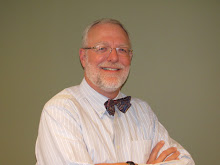Two people whose blogs I follow religiously – you know about being religious; you may not check in regularly, but you are faithful – are Tom Peters and Seth Godin. These are thought leaders in their fields and often have posts that change the way I think. Two recent posts really hit home.
I often work with clients to create profiles on LinkedIn.com. It’s become a reality that social networks, like LinkedIn, Facebook and Twitter, are critical to building and maintaining one’s brand – differentiating oneself from the rest of the pack. Many of my clients – especially those of a certain age – don’t quite get this yet. They may reluctantly post a profile on LinkedIn and then ignore it. Social networks are online communities. Like most communities, they require participation to be effective. You can’t just show up; you’ve got to contribute. Most folks just want to show up; have a presence on LinkedIn, and expect the world to beat a path to their door. They get discouraged when it doesn’t happen. They’ve posted their profile, but no one seems to care.
Another group may be more active. They troll LinkedIn, extending invitations to connect. They get pretty excited when their invitations are accepted and their connections build. “Oh yeah,” they’ll say, “I’m on LinkedIn. I’ve got over 100 connections.” The problem is they’re still not contributing; they’re just collecting.
Godin recently posted about the reason social media is so difficult for most organizations. He noted that it’s because social media is a process, not an event. Events are easy to manage; processes build results for the long haul. The same holds true for individuals and their participation in social media. Posting a profile is the event, but effectiveness comes from the process of contributing. LinkedIn has groups to join and Q&A sections to participate in. Contributing to both raises one’s profile in LinkedIn and sets one apart from the millions of other, more passive, profiles on the network.
So, having encouraged you to contribute to the social media community and be involved, virtual participation isn’t enough. Peters hosted guest blogger, Karyn Polewaczyk, who in her post Meeting Up: The New Black, reminds us that we shouldn’t confuse the importance of virtual contacts with the value of face-to-face interactions. There is no substitute she admonishes us, for presenting our “best, polished self in realtime. Social media is the fancy awning that hangs from a building; human interaction is the bricks and mortar.”
Part of the process of networking is getting in front of people; actually connecting and building relationships. My friend Peter Larson notes that it’s all about relationships. The people with whom you take time to build relationships will most likely be the folks that help you find your next position. They will have an investment in your well being and will want to see you succeed.
So the process of building relationships occurs both in social networks and face-to-face. It’s not an “either or”, but a “both and.” Be active in and contribute to your social network community. Meet face-to-face with those to whom you’re connected. Build relationships.


